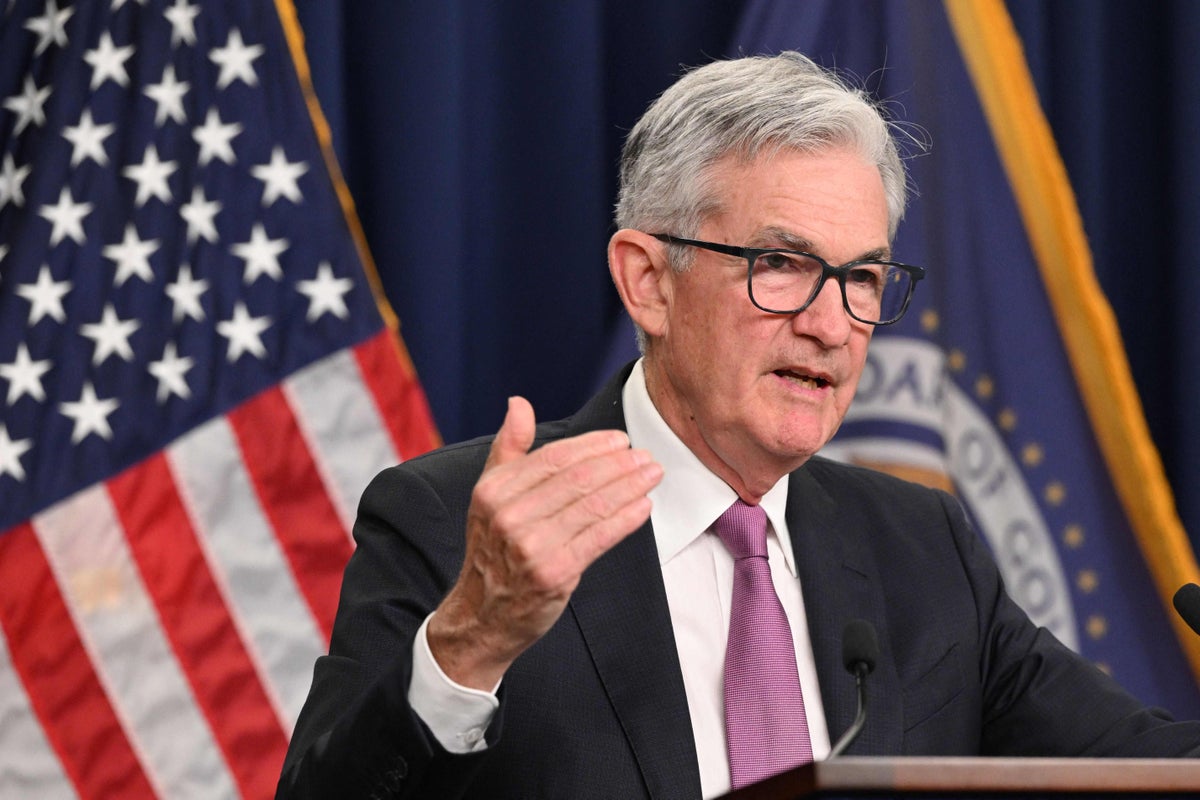
The Federal Reserve has wrapped up its two-day meeting with Chair Jerome Powell announcing another 0.75 percentage point interest rate hike.
Policymakers are attempting to cool surging inflation, currently at levels not seen in four decades. The consumer price index for June jumped 9.1 per cent from a year ago.
This is the second increase of this magnitude since June and was made in a unanimous vote. The Fed is under pressure to continue raising interest rates aggressively but must tread a fine line to avoid a recession.
It is also the Fed’s fourth rate hike since March. Since then, the central bank has tightened credit ever more aggressively.
The central bank’s move raises the benchmark overnight borrowing rate up to a range of 2.25% to 2.5%.
Speaking at a press conference after the announcement, Mr Powell said ongoing rate hikes “will be appropriate”, promising the Fed has the resolve to tackle inflation and intends to bring inflation back to the two per cent target level.
He also described the economy as resilient and said while job growth has slowed it remains robust.
Mr Powell said that further rate hikes are likely in the coming months to combat inflation and could even include another “unusually large” increase if inflation continues to disappoint, but it is “likely appropriate to slow increases at some point”. It will all depend on the data.
Asked whether he thought the US was in a recession, Mr Powell said he did not think it was, citing the “remarkably strong” labour market and adding “it doesn’t make sense” for the country to be in a recession right now.
Ahead of Thursday’s GDP figures, Mr Powell cautioned that initial data is often revised.
By raising borrowing rates, the Fed makes it costlier to take out a mortgage or an auto or business loan. In turn, consumers and businesses will likely borrow and spend less, cooling the economy and slowing inflation.
The Fed’s hikes have already led to a doubling of the average rate on a 30-year fixed mortgage in the past year, to 5.5 per cent, and home sales have tumbled.
The central bank is betting it can slow growth just enough to tame inflation yet not so much as to trigger a recession — a risk that many analysts fear may end badly.
In a statement issued on Wednesday, the Fed’s board of governors said: “Recent indicators of spending and production have softened. Nonetheless, job gains have been robust in recent months, and the unemployment rate has remained low. Inflation remains elevated, reflecting supply and demand imbalances related to the pandemic, higher food and energy prices, and broader price pressures.”
The statement continues: “Russia’s war against Ukraine is causing tremendous human and economic hardship. The war and related events are creating additional upward pressure on inflation and are weighing on global economic activity. The Committee is highly attentive to inflation risks.”
Some analysts point to signs that the US economy is slowing and might even have shrunk in the first half of the year. As a result, they worry that the Fed could end up tightening credit too much, too fast, and end up causing a downturn that would lead to layoffs and rising unemployment.
However, economists say that wouldn’t mean a recession had started. During those same six months when the economy might have contracted, employers added 2.7 million jobs — more than were gained in most entire years before the pandemic. Wages are also rising at a healthy pace, with many employers still struggling to attract and retain enough workers.
With reporting from The Associated Press







